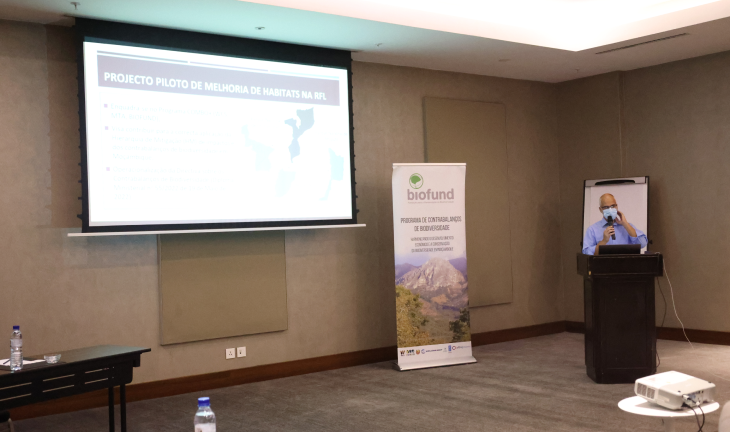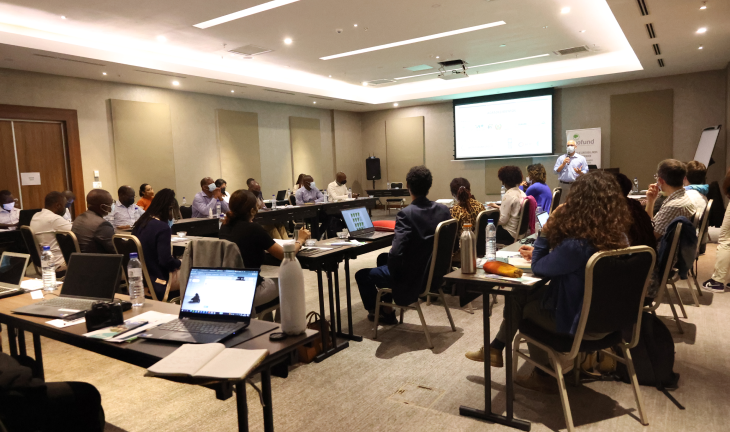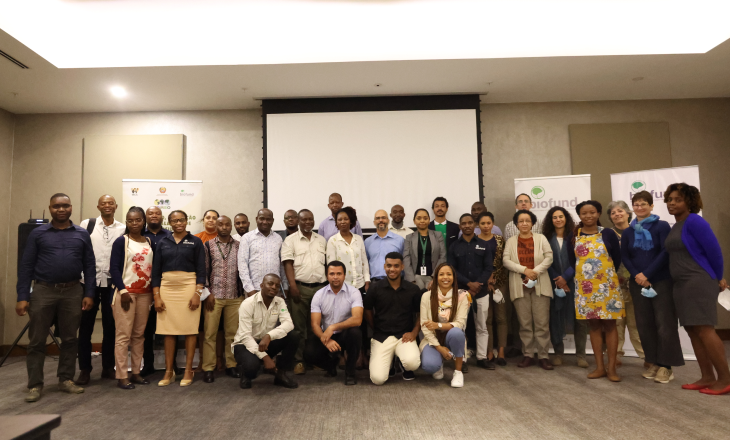The Monitoring Group of Biodiversity Conservation Initiatives in the Licuáti Forest Reserve and the Surrounding Area held its fourth meeting on August 8th in Maputo, aimed at presenting and discussing the results of the ecological and socio-economic characterization studies, and the proposal for a management plan for the conservation of the Licuáti region in the Matutuíne district, Maputo.
Published at 12/08/2022
Biodiversity Conservation Initiatives in the Licuáti Forest Reserve (RFL) and the Surrounding Area in Matutuíne Landscape in Maputo
The meeting was attended by around 30 participants from different government institutions, conservation areas, the private sector, civil society organizations, academia and multilateral and bilateral partners engaged in biodiversity conservation in the Licuáti region and Mozambique.
This group was established in 2021 under the leadership of the National Directorate of Forests (DINAF) with the purpose of building a common vision for the sustainable management of biodiversity and community development in Matutuíne, as well as promoting the coordination and monitoring of pilot projects to improve habitats of the Licuáti Forest Reserve (RFL) and Maputo National Park (PNAM) promoted by the National Directorate for the Environment (DINAB), the Foundation for the Conservation of Biodiversity (BIOFUND), Wildlife Conservation Society (WCS), National Directorate of Forests (DINAF) ) and the National Administration of Conservation Areas (ANAC).
Licuáti ecological and socio-economic characterization studies have once again highlighted the ecological value of the Licuáti region, recently declared as a Key Biodiversity Area (KBA). The Licuáti region is rich in habitats diversity that bear priority flora and fauna species for biodiversity conservation, including endemic and threatened species. However, the biodiversity of this area is threatened by anthropogenic activities that include the cutting of trees for charcoal production, uncontrolled fires and expansion of agricultural areas, which cause loss, conversion and fragmentation of natural habitats.
Coal production is the main economic activity with an impact on Licuáti natural habitats, and it is concentrated near the access roads and main population centres. The current tendency of resource exploitation in this region, associated with the lack of alternative livelihood and income sources will result in a continuous loss of biodiversity, which imposes an urgent need to implement measures to protect intact areas, restore degraded areas through the engagement of multiple actors and to propose financial alternatives to ensure the conservation of biodiversity and the livelihoods of the local communities.
The biodiversity offsets regulated by Diploma 55/2022 are a potential financial solution to support the conservation of biodiversity in Mozambique, including as a priority key areas and areas for biodiversity, such as the Licuáti Forest Reserve.
A management plan for the Licuáti region is under development as a way of reversing the current degradation of this rich region of the country.
Read the results of these studies here:




